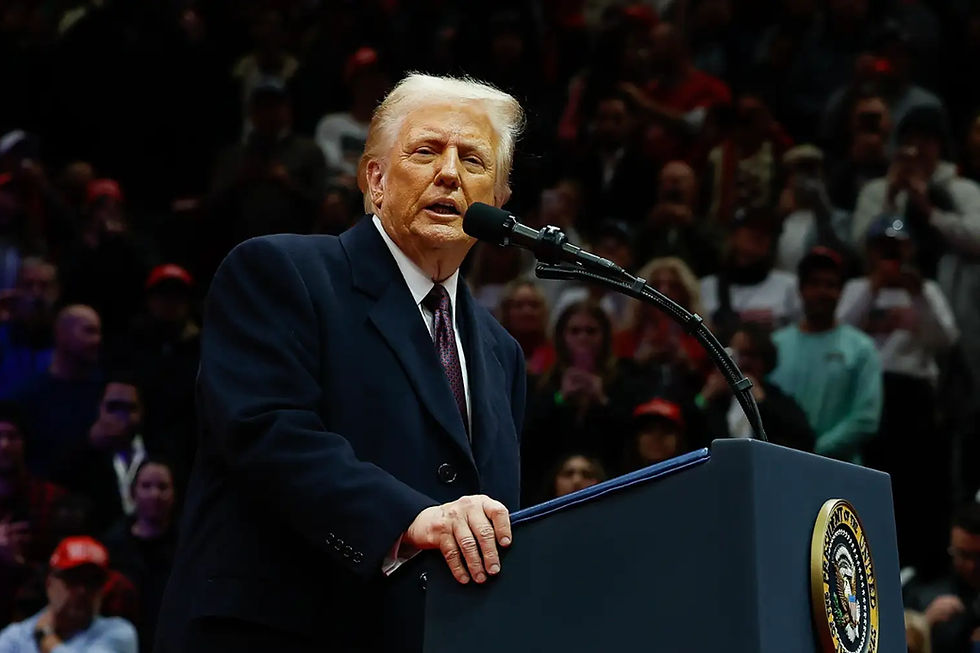China’s Peace Plan For Ukraine
- Nicholas Shubitz

- Dec 8, 2022
- 4 min read
Updated: Jan 29, 2025
China’s proposed peace settlement for the Ukraine crisis has been dismissed in Western capitals. But why? The proposal includes respect for territorial integrity, an immediate ceasefire, the resumption of peace talks, and the provision of humanitarian aid, all of which should be supported. Considering Zelensky’s willingness to consider the Chinese proposal, why then is the United States so opposed?
With Russia gradually incorporating newly mobilised troops into their frontline forces, the Kremlin has said that they do not feel the time is right to pursue China’s plan. One would think this creates a perfect opportunity for the US to isolate Russia by embracing China’s proposal. The US has been pressuring Beijing to join sanctions against Russia so why the reluctance to work with Beijing now?
It may be that the US fears doing so will give China a diplomatic win. With the peace proposal, China is positioning itself as a world leader in the sphere of international diplomacy, effectively usurping a role the United States believes should be reserved for itself. However, in rejecting the Chinese plan, the US and Nato could be accused of choosing war with Russia ahead of peace for Ukraine, giving credence to Beijing’s claim that irresponsible Nato expansion was the primary cause of the conflict.
Aside from the fact that the United States has been unwilling to present a credible non-military solution to the conflict, US diplomatic efforts in recent years have proven sketchy. The progress Obama achieved with Iran was undermined by the Trump administration, while Trump’s progress with North Korea has been undone by Biden. The world needs an influential actor to champion diplomatic solutions to global problems. If the US is unable or unwilling to fulfil this role, then China has every right to do so.
The Chinese proposal also undermines a narrative being promoted by Congressional Republicans who have argued that China benefits from a long war in Ukraine. Their theory is that an extended war will deplete US weapons stockpiles (as arms are sent to Ukraine) and ultimately undermine US military readiness to engage China in a conflict over Taiwan. In reality, the Republicans have other reasons for championing a quick end to the conflict. Presenting support for Ukraine as a burden on US taxpayers and an example of what they call Biden’s ‘America last’ philosophy, they are trying to turn support for Ukraine into a critique of the Democrats handling of the US economy. Adding a China narrative to the mix is simply an attempt to obscure this motive.
Although the US is depleting their weapons stockpiles, the arms being sent to Ukraine are different from those that would feature most prominently in a conflict over Taiwan, and while China benefits from imports of discounted Russian crude that used to flow to Europe, the inflation higher energy prices have engendered worldwide have led to higher interest rates and a slower global economy, which is bad for China’s export driven economy. Ultimately, China benefits more from a peaceful resolution, both economically and politically, especially in leading a process to achieve this objective.
Ukraine will need hundreds of billions of dollars to rebuild their country after the war. The Chinese, who have the financial resources to assist, may have quietly indicated a willingness to help Ukraine rebuild its civilian infrastructure if it returns to the negotiating table. This of course would give China enormous influence in the future Ukrainian state and is something we’ve already seen take place in Afghanistan after US troops were withdrawn.
Perhaps this is the real reason the US is reluctant to entertain the Chinese proposal. Just as the US has looked to replace Russian energy exports to Europe with their own, their desire to keep China out of Europe has become increasingly obvious. The US State Department has applied significant pressure on European countries to sever economic ties with China (as seen with the rollout of 5G networks). Similarly, having Chinese state-owned construction companies rebuild Ukraine is certainly not a welcome development within the context of Washington’s foreign policy agenda.
The only other reason the United States may have for rejecting the Chinese proposal is that they do not want the war to end in anything but a Russian defeat. But of three possible scenarios: a Russian victory, a negotiated settlement, and a Russian defeat, the latter is the least likely because Russia has nuclear weapons, and the United States has already set a precedent for using them.
Realistically, the US is fully aware of this and is probably hoping Russia is restricted to achieving a pyrrhic victory in Ukraine. An outcome whereby the Kremlin can only claim to have accomplished some of its stated war aims, while Russia is weakened to the point where it is unable to effectively challenge Nato. In many respects this has already been tacitly acknowledged by the Pentagon.
All in all, the US believes rejecting China’s proposal will prevent Beijing from achieving a diplomatic coup, preserve US dominance over Europe, and see the continuation of a war to exhaust Russia at any price (including the destruction of Ukraine). This is a remarkably cynical posture considering the situation on the ground. Millions have been displaced, tens of thousands have died, Kiev’s forces are under severe pressure in the Donbas, and Ukraine has already lost strategically important territories.
Considering the global ramifications of the conflict, a diplomatic resolution would be by far the best outcome for everyone. This includes Ukraine, who would do better to negotiate with China on their side than continue to gamble on a miraculous victory against a newly enlarged Russian army.




Comments